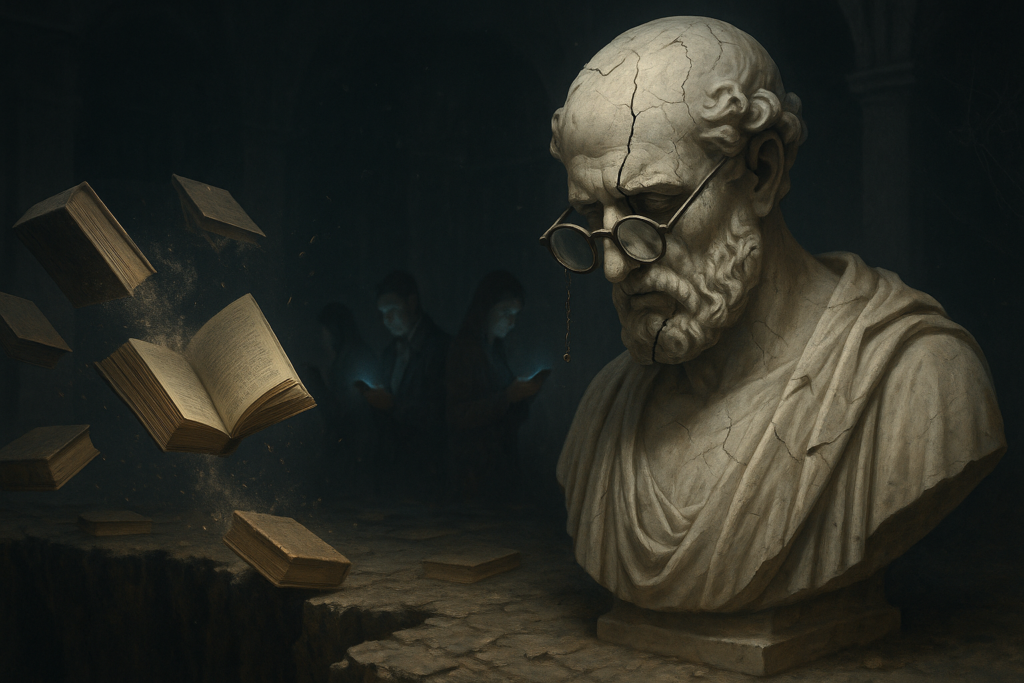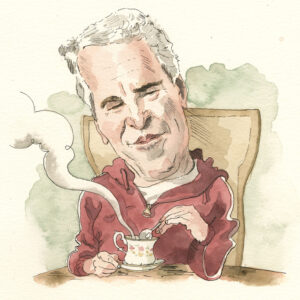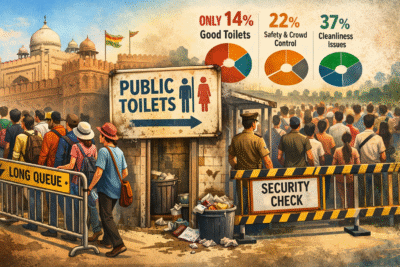
Is the collapse of the knowledge system near? The collapse of the knowledge system threatens science, education, and trust (Photo for representation: AI generated)
A society is as powerful and resilient as its intellectual property is. If the intelligentsia misses out big signs of the contemporary times, society is bound to pay a heavy price. Are we living in such a time?
In a compelling essay for The Free Press, cultural historian and jazz critic Ted Gioia argues that we are witnessing a profound and largely unrecognised transformation: The Collapse of the Knowledge System. This shift, Gioia suggests, is as momentous as the Renaissance or the Enlightenment, yet it remains unnamed and unacknowledged by mainstream discourse.
This systemic breakdown is shaking the foundations of how society values truth, expertise, and authority. Gioia identifies ten key signs of this collapse, each familiar individually but alarming in their simultaneous occurrence.
Ten signs of a crumbling knowledge system
- Scientific studies fail to replicate: Gioia highlights a crisis in scientific reliability, with over 40% of studies failing replication and unreliable research often cited more than trustworthy work.
- Public distrust of experts soars: While skilled tradespeople maintain public trust, white-collar experts face unprecedented scepticism—even within their own professional communities.
- Knowledge careers in crisis: The traditional career paths for knowledge workers are breaking down, with many graduates burdened by debt and fewer job prospects, even in fields like computer science.
- Research funding dries up: Both government and corporate funding for human-driven scientific research are shrinking, replaced by investments in AI infrastructure.
- Universities lose prestige: Rising tuition fees, bureaucratic expansion, and alienation of core constituencies have plunged higher education into crisis.
- Plagiarism runs rampant: From students to top institutions, plagiarism is widespread and often ignored, undermining the integrity of knowledge.
- AI: The flawed new expert: Artificial intelligence is increasingly imposed as an authority despite frequent errors and “hallucinations,” with little accountability from those in charge.
- Technology used for manipulation: Software updates degrade user experience; social media exploits psychological vulnerabilities; privacy erodes under surveillance.
- Scandals become the norm: From Theranos to fake AI companies, scandals in the knowledge economy are so frequent they barely raise public concern.
- “Fake science” is weaponised politically: Accusations of “fake science” from all sides erode genuine scientific discourse and public trust.
Why has this crisis been overlooked?
Gioia explains that admitting such a collapse threatens the status and power of experts and institutions, so the crisis is addressed only in isolated ways rather than as a systemic problem.
What lies ahead?
According to Gioia, the old hierarchy of knowledge is dying, but something new will emerge—likely a system grounded not only in technology and data but in human values, the humanities, and cultural treasures such as art, music, and philosophy.
Science and technology will remain essential but must be reshaped to serve human flourishing rather than dominate it. The future knowledge system will be “softer and gentler,” embracing both soul and mind.
Ted Gioia’s essay in The Free Press challenges us to recognise the greatest story of our century unfolding quietly: the collapse of the knowledge system. As the old order fades, we face the urgent task of building a new foundation for truth and expertise—one that truly supports human flourishing.
Disclaimer:
This article is based on Ted Gioia’s original essay, “Our Knowledge System Has Collapsed. Can We Survive Without It?” published in The Free Press on 10 June 2025.



